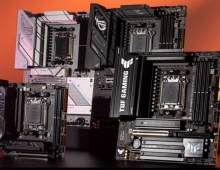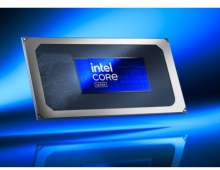
Intel seeks role in development of the next Internet
To handle the demands of the next-generation Internet, a new layer of intelligent nodes and services need to grow over the existing Internet structure, said Intel Chief Technology Officer Pat Gelsinger, during his concluding address at the Intel Developer Forum Thursday.
Gelsinger described a future Internet where millions of new devices and users place a strain on the network. Intel's vision for addressing those concerns involves the deployment of Intel-based servers as new network nodes that can handle more complex tasks such as dynamic traffic routing and advanced security.
Intel has already deployed 440 nodes at 194 separate sites around the globe under its PlanetLab initiative, Gelsinger said. PlanetLab is an industry research association that counts companies such as Intel, Hewlett-Packard, France Telecom and Google among its members.
Through virtualization technology, a variety of network services could share those computing resources, Gelsinger said. For example, Intel showcased a service built by graduate students at the University of California, Berkeley, called PHI (public health of the Internet).
Intel used PHI to analyze attacks upon the PlanetLab network over a period of time, and discovered that the top 10 sources of attacks on the network accounted for 60 percent of the overall attack-related traffic, Gelsinger said. PHI can identify the IP (Internet Protocol) addresses of those attackers and share that information with corporations, helping to cut down the amount of traffic caused by worms and viruses, he said.
The PlanetLab initiative would not replace the existing routers and switches that make up the backbone of the Internet, Gelsinger said. Instead, it would provide an additional layer that would sit above the existing network to handle what Intel calls "planetary-scale services" such as PHI or grid computing, Gelsinger said.
An initiative like this requires a great deal of computing power, and that's where Intel comes in, Gelsinger said. A network with vast computing resources could allocate those resources where they are most required and automatically detect problems with that network, he said.
Intel and HP believe that a business opportunity exists within the PlanetLab project and the two companies plan to start commercializing the technology very soon, Gelsinger said.
From ComputerWorld





















